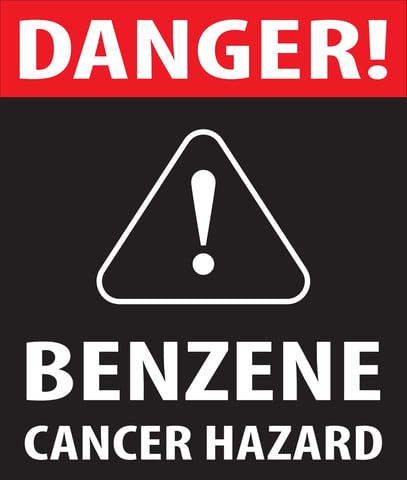
Over the last three years, this “known human carcinogen” has been found in hand sanitizers, sunscreens, deodorants, dry shampoos, and benzoyl peroxide acne products. Attention has again turned to benzene contamination in skin care products following a new study published in the Journal of Investigative Dermatology. This research examined 111 products containing benzoyl peroxide (BPO) removed from retail shelves and stored at room temperature. The findings revealed that 38 of these products (34%) exceeded the U.S. Food and Drug Administration's (FDA) conditional limit for benzene. The brands affected included Clearasil, CVS Health, La Roche-Posay, Proactiv, among others.
The new study suggests that the benzene likely formed within the products themselves, with high temperatures and UV exposure potentially accelerating this process. Prolonged exposure to these conditions appeared to increase the levels of benzene. These findings are consistent with earlier reports from this year regarding the presence of benzene in acne and rosacea treatments containing BPO.
In this study, products were sourced from major retailers across six regions in the U.S. and tested at room temperature shortly after acquisition. Benzene levels ranged from 0.16 ppm to 35 ppm, as determined by gas chromatography-mass spectrometry (GC-MS). Among the 111 products tested, 38 exceeded the FDA's conditional limit of 2 ppm. Notably, two products with elevated benzene levels were found to be past their expiration dates—one was six months past, while the other was 1.3 years past its expiry date. The six-month expired product contained 0.62 ppm of benzene, consistent with different samples from the same brand. However, the 1.3-year expired product showed significantly higher levels at almost 11 ppm.
Additionally, a prescription-strength product containing encapsulated BPO was subjected to stability testing at cold (2°C) and elevated temperatures (50°C). No benzene was detected at 2°C, whereas high levels were formed at 50°C, indicating that the encapsulation technology did not effectively stabilize BPO under increased temperatures. This suggests that storing these products at lower temperatures may mitigate benzene formation.
Furthermore, benzene was detected in the surrounding air when a BPO-containing product was applied to polymethylmethacrylate plates and exposed to UV light below peak sunlight levels. This indicates benzene can evaporate and form significantly even under lower UV exposure conditions.
How Quantum Can Help
Since 1992, Quantum Analytics Group has been supporting pharmaceutical, cosmetics, beauty, and personal care product manufacturers with testing and consulting services. Our services include consulting on cGMP standards and practices, product testing services to support quality and release testing, label reviews, quality audit support, and more.
Quantum provides comprehensive analytical testing for ingredients, raw materials, in-process samples, and finished products.
QUANTUM Analytics Group Solves Problems. Our approach is to work closely with each client collaboratively, handling every project with personal care and giving every client one-on-one attention. Then, through this collaborative approach and our unique blend of experience and expertise, we focus on providing accurate, efficient, and consistent data and results to address and resolve questions or issues that impact your products.
For a Free Consultation Call 800-448-2968 to speak with one of our experts.










































